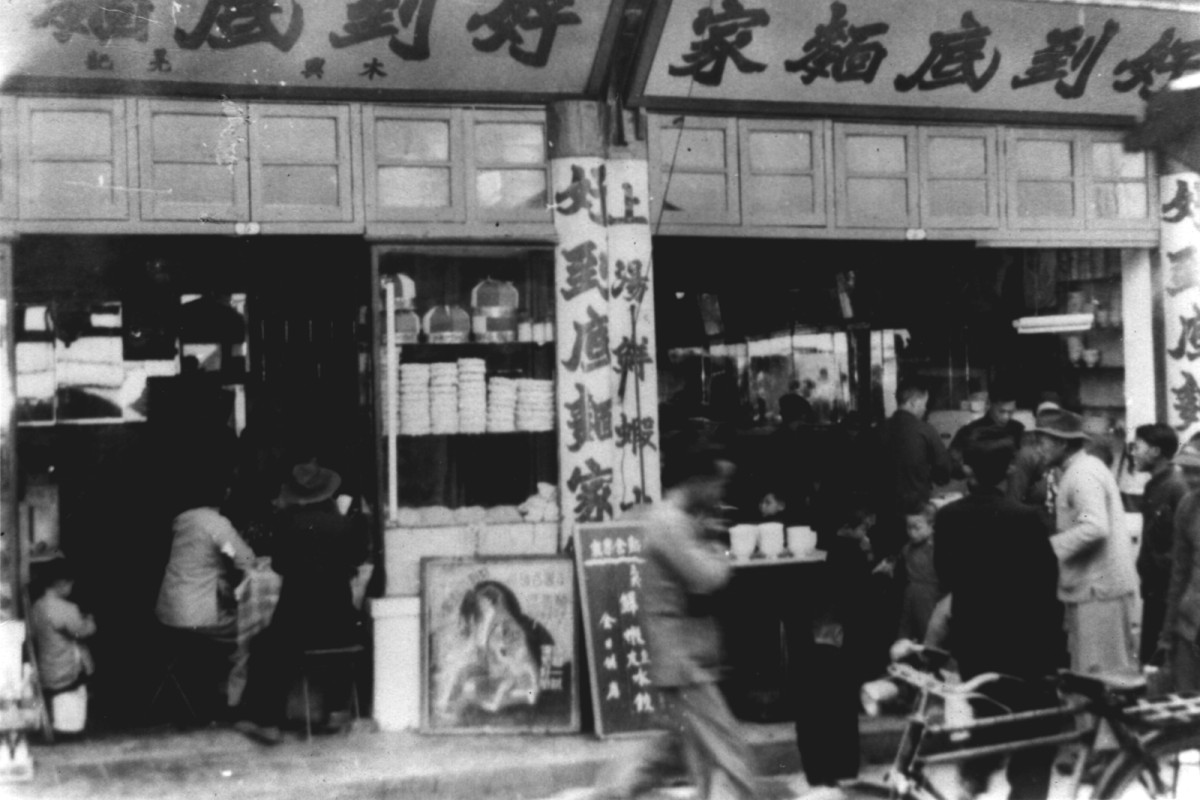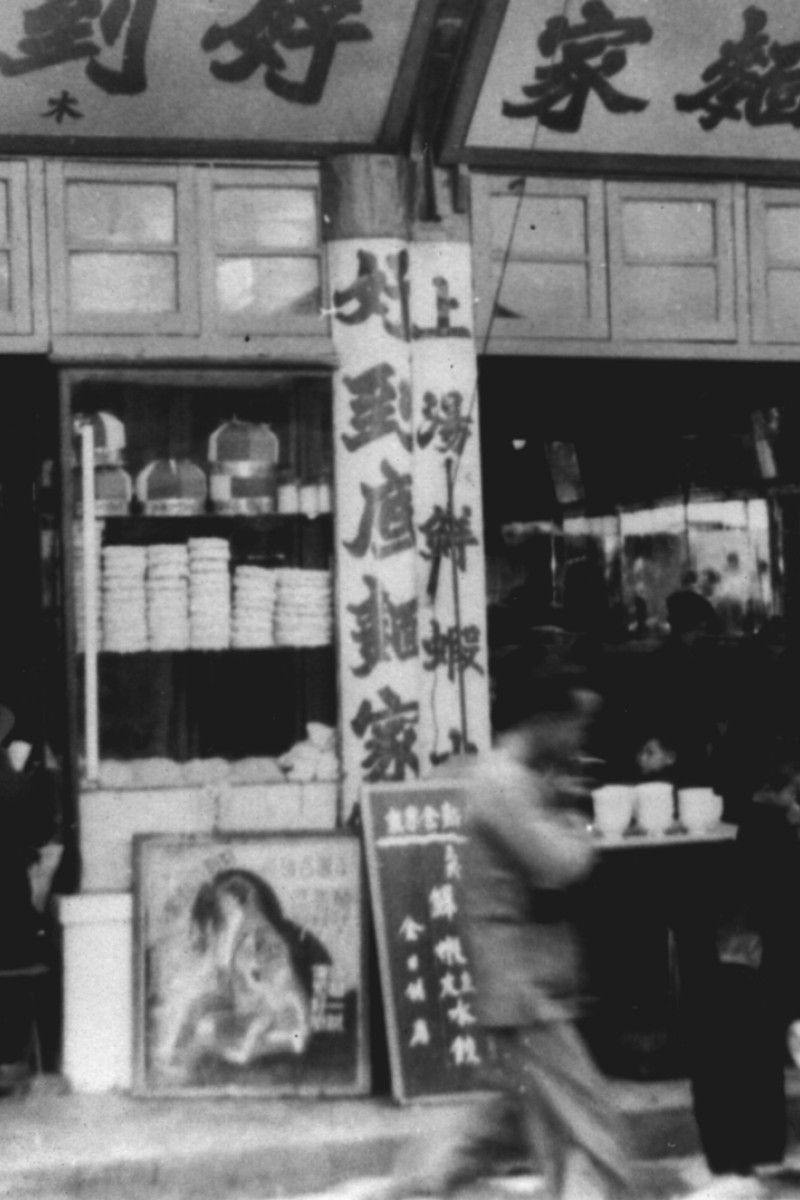 A few years after Ho To Tai opened.
A few years after Ho To Tai opened.Yuen Long doesn't exactly have a reputation as the best place for exotic food. However, it is an enticing destination for those who want top-quality, traditional cooking.
Located on Fau Tsoi Street, local restaurant Ho To Tai serves all-round great food, but it is the noodles that make the business worthy of its Michelin-recommended reputation.
Ho To Tai first blessed the neighbourhood with delicious Guangdong-style food back in 1946 when it was established by Chan Po, father of the current owner, Chan Kei-yum. Nowadays the business is mostly run by his son, Chan Sze-kit.
Its name denotes thoughtful service and value for money. When asked about its origins, Chan Sze-kit says: "It means that our food is good to the very end, because we give our all when doing anything."
Chan Po started off serving food as a mobile street vendor. Back then, he served only soup noodles and wonton, as making these was more convenient than preparing dry noodles and other snacks.
Over time, he was able to save up enough money to start a noodle shop with his siblings. And so the family business was born.
Chan Sze-kit first started learning the art of making noodles when he was 17 years old. He moved on to kitchen work in his 20s, and in his early 40s, took on his current responsibility of running the business.
Dining in Hong Kong can be very trend-led, but he hopes that the family business' success will continue. "If a generation doesn't like it, then there is no choice but to pack up the business," he reflects.
In the 69 years since Ho To Tai first opened, some things have changed, while others not so much. You can no longer buy a bowl of hot wonton noodles for just 30 cents like you could in the 1940s. But back then, you couldn't buy dry noodle dishes, which were more recently introduced.
Early on, most customers used to live in Yuen Long, and would grab a bowl of noodles after a day's shopping. Even now, many regulars still live in the district, and some eat at Ho To Tai daily.
And it's cheap enough to do so, unlike conventional Michelin-recommended eateries, which are expensive and a rare treat for diners.
A history stretching back multiple generations in the area means it's not uncommon to see older residents bringing their sons and daughters, who then bring their own children, for a bite to eat.
Hong Kong's urbanisation should have helped increase Ho To Tai's customers, but this hasn't been the case. Its popularity peaked during the 1970s before competition in the food industry, especially for traditional Guangdong cuisine, became more intense.
The restaurant still takes a traditional approach to its noodles. However, increased demand has meant the dough is no longer kneaded with bamboo or personally prepared by the Chan family, though the ingredients used are still carefully chosen.
Even with the top quality ingredients, don't be surprised if your trip to Yuen Long costs more than the food you order.
For example, instead of using diluted egg batter or dyeing noodles yellow to cut down on the cost of ingredients, Ho To Tai continues to use fresh eggs.
Since it was first set up decades ago, the noodle shop has opened branches all over Hong Kong. However, those who make the trip to Yuen Long will still be rewarded with freshest and highest-quality dishes, as this is where the food is cooked before being distributed to the smaller outlets.
Looking to the future, Chan Sze-kit explains: "For now, we need to stabilise the quality of our food.
"If your quality isn't good, expanding your business will be of no use."
Chain restaurants such as School Food and Pizza Express may be addictive and more conveniently located, but sometimes you've just got to spend more time and burn extra calories for something more special.
